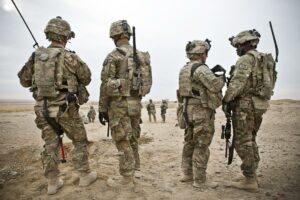
The global power balance is rapidly evolving, leaving the United States at a turning point with respect to its level of engagement and the role of its military. Some argue for an “America First” paradigm, with a large military to ensure security, while others call for a more assertive posture overseas. Some advocate for a restoration of American multilateral leadership and a strengthened role for diplomacy. Still others envision a restrained U.S. role, involving a more limited military. How does the military function in today’s international order, and how might it be balanced with diplomatic and foreign assistance capabilities?
Major General (Ret) William E. Rapp is a Lecturer in Military Affairs in the Belfer Center at Harvard Kennedy School, the Faculty Chair of the Senior Executive program in National and International Security, and the Faculty Chair for the National Security Fellows program. Major General (Ret) Rapp served more than 33 years as an active duty Army officer before retiring as a Major General. During his career as the Army’s senior liaison to the U.S. Congress, Rapp has served in Germany, Japan, Iraq, and Afghanistan. His research interests include civil-military relations and organizational leadership. A graduate of West Point in 1984, he holds a Masters in Strategic Studies from the US Army War College and a Masters and PhD in Political Science from Stanford University.
Footer Form
